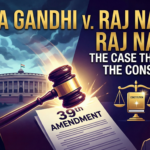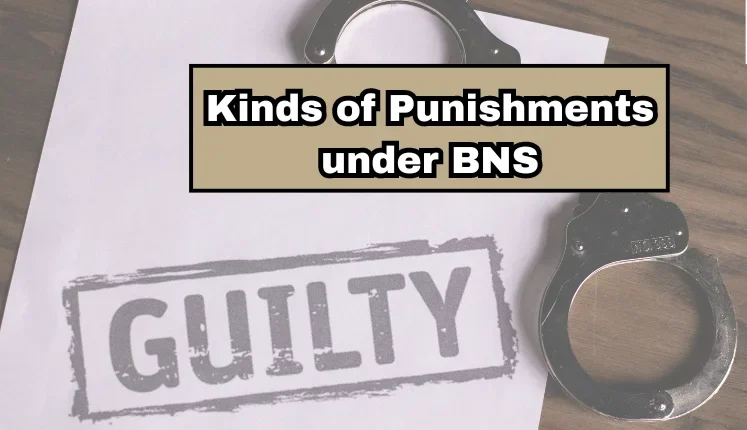Table of Content
ToggleMEANING
The fundamental aim of punishment is to give relief to the aggrieved party and to maintain law and order in society. Punishment can also be termed as the imposition of some form of deprivation by withholding
rights that a person is legally entitled to.
OBJECTS OF PUNISHMENT
- . To protect society from mischievous elements by deterring potential offenders.
- To prevent actual offenders from committing further offences.
- To eradicate evils and reform criminals and turn them into law abiding citizens.
- To administrate justice partly by inflicting pain to deter criminals and others from indulging in crime and partly by reforming criminals.
- To maintain rules and regulations for a crime-free country.
Deterrent Theory of Punishment
The word ‘deter’ means to prevent. Here, deterrent theory refers to refraining from doing a particular act. The main goal behind using this theory is to restrain criminals from committing a crime. In such theories, punishments awarded are severe in nature, which creates fear not only in the criminal’s mind but also in the minds of others.
The object of this theory is not only to prevent the wrongdoer from doing a wrong subsequently but also to make him an example for society and other people who have criminal tendencies.
Retributive Theory of Punishment
The word ‘retribute’ means to give in return the same thing that has been received. To payback. It is also known as Vengeance Theory. It is based on the principle – tit for tat. This theory is against the principle of Mahatma Gandhi. There was a belief that if the offender is subjected to the same torture as he had done to the victim, then it makes the offender realise what he has done.
This theory proposes tit for tat, eye for an eye, tooth for a tooth. The punishment has to be proportional to the crime committed. The believers of this theory say that criminals must suffer pain. Retributive theory is the most ancient theory of justice.
Preventive Theory of Punishment
The main aim of this theory is to prevent crime. When criminals are kept in jails, they are kept out of society. The object of this theory is to prevent or disable the offenders from repeating the offence by giving them punishment. A supporter of preventive theory is Paton. Examples of the preventive theory of punishment include death, life imprisonment, forfeiture of property, etc.
Reformative Theory of Punishment
This theory focuses on reforming criminals and bringing them back to society as good and law-abiding citizens. This is based on the Gandhian principle: Hate the sin, not the sinner.
This theory was successful to some extent in the case of juveniles. Some work or craftsmanship is imposed on the offender during his period of confinement with the aim that he will start a new life after his punishment is over.
Example of the reformative theory of punishment: Ankit, a prisoner, has learned pottery during his stay in jail. After his release from jail, he started a pottery business, earned his livelihood and lived happily.
Expiatory or Compensatory Theory of Punishment
The theorists of this theory say that the object of punishment is self-realisation. If the offender, after committing an offence, realises his guilt, then he must be forgiven.
In other words: This theory relies on compensation to the victim for the loss caused by the accused. In this way, the offenders are made to realise the same sufferings they have caused to the victim.
Example of the expiatory or compensatory theory of punishment: Sukant, who injured Bikash, undergoes
imprisonment where he was made to work and sell his outcomes. The money earned is provided to Bikash to compensate for his treatment.
Incapacitation Theory of Punishment
This theory puts the criminals into the state of being incapacitated to prevent the offence. A fear also grows in the minds of the criminals and future generations before attempting to commit future crimes, thus preventing it.
Incapacitated means deprived of strength or power.
Example of the incapacitation theory of punishment: Capital punishments and life imprisonment.
- Dying declaration
 by Aayush Anand & LT Team
by Aayush Anand & LT Team - Bihar APO Exam Date 2026: Prelims Scheduled for July 15 – Check Official Notification
 by Aayush Anand & LT Team
by Aayush Anand & LT Team - UP APO Exam Date 2026 Announced: Check UPPSC Official Calendar & Schedule
 by Aayush Anand & LT Team
by Aayush Anand & LT Team - Indian Army JAG 124 Notification 2026: Vacancies, Eligibility, and Apply Online
 by Aayush Anand & LT Team
by Aayush Anand & LT Team - Official IBPS 2026-27 Calendar Out: Check SO Law & RRB Scale II Dates
 by Aayush Anand & LT Team
by Aayush Anand & LT Team

